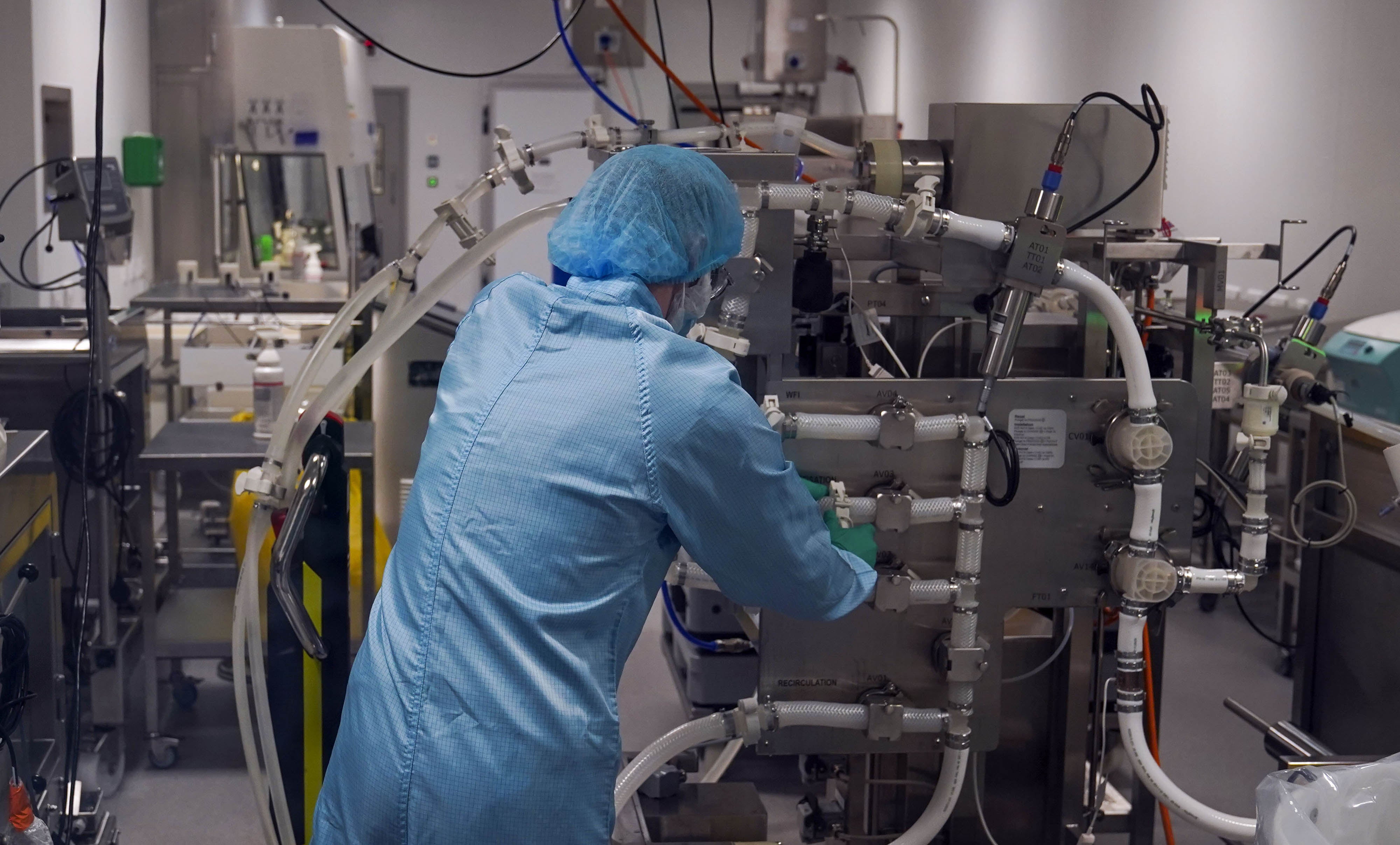Manufacturing grows as supply chain disruption eases
The closely followed IHS/CIPS Purchasing Managers Index scored 58 in February as manufacturers stocked up on products.

Your support helps us to tell the story
From reproductive rights to climate change to Big Tech, The Independent is on the ground when the story is developing. Whether it's investigating the financials of Elon Musk's pro-Trump PAC or producing our latest documentary, 'The A Word', which shines a light on the American women fighting for reproductive rights, we know how important it is to parse out the facts from the messaging.
At such a critical moment in US history, we need reporters on the ground. Your donation allows us to keep sending journalists to speak to both sides of the story.
The Independent is trusted by Americans across the entire political spectrum. And unlike many other quality news outlets, we choose not to lock Americans out of our reporting and analysis with paywalls. We believe quality journalism should be available to everyone, paid for by those who can afford it.
Your support makes all the difference.The UK’s manufacturing sector has grown at its fastest pace in seven months as demand rose and supply chain delays and raw material shortages eased, according to data.
The closely followed IHS Markit/CIPS Purchasing Managers’ Index (PMI) rose to 58 for February, up from 57.3 in January.
Any score above 50 is seen as a sector in growth.
Respondents to the survey said there was a boost in new orders and suppliers bought more stock to replace depleted levels, as supply chains improved.
The potential for higher commodity prices, disruptions to supply and economic pain must be considered by businesses as they try to build resilience into their supply chains in the coming months
Manufacturing output and new orders from UK-based customers rose across all sub-sectors and benefitted from customers being more positive following the winding down of Covid-19 restrictions.
By comparison, new export business fell for the fifth time in six months due to ongoing pandemic restrictions and Brexit-related issues, the survey found.
Prices remain high but there were signs that the speed of the increases is starting to ease.
Supply chain problems persisted but respondents said they believed disruptions had passed their peak.
Suppliers attempted to offset problems with supply chains by increasing inventories of raw materials to avoid being short in future.
Around 64% of respondents said they believed production would increase over the next 12 months – taking the overall degree of optimism to a six-month high.
As a result of the positive picture and increased business in the sector, bosses said employment increased for the 14th consecutive month.
Rob Dobson, director at IHS Markit, which compiles the survey, said: “Growth was boosted by stronger domestic demand and by firms catching up on delayed work as material shortages and supply chain disruptions started to dissipate.
“While companies maintain a positive outlook for the year ahead, rising headwinds, especially the intensifying geopolitical backdrop, are ratcheting up near-term risks to demand and confidence.
“Inflationary pressure also remained elevated across the manufacturing sector in February.”
Duncan Brock, group director at the Chartered Institute of Procurement & Supply (CIPS), said: “There were certainly several positives for the UK’s manufacturing sector in February as 64% of manufacturing businesses remained optimistic.
“However, this success comes with a health warning as the Ukrainian crisis deepens, and the potential for higher commodity prices, disruptions to supply and economic pain must be considered by businesses as they try to build resilience into their supply chains in the coming months.”